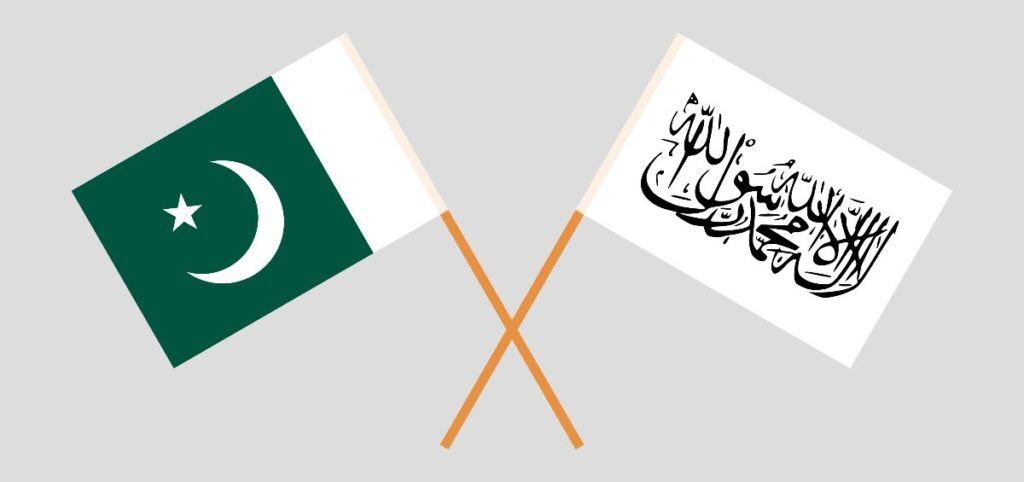Islamabad and Kabul: Tentative Diplomacy to Avert War.
After six days of intensive negotiations, which even declared the process to fail at one point, Pakistan and the Afghan Taliban finally agreed last night (Thursday night) to continue the ceasefire, and the third round of talks mediated by Qatar and Turkey will be held in Istanbul on November 6.
Two days ago, Pakistan’s Information Minister officially announced the failure of the talks with the Taliban, which lasted four days. At the same time, a new round of talks between the two countries resumed yesterday (Thursday) at the request of the Afghan Taliban.
After the latest agreement to continue the ceasefire with the Afghan Taliban, Pakistani security sources announced that intensive talks were held for six days in Istanbul with a single agenda from the Pakistani side, which was to stop attacks and convince the Taliban to take decisive and verifiable action against the terrorist organizations Tehreek-e-Taliban Pakistan and Baloch separatist elements, which Islamabad claims are supported by India.
Pakistani media reported that during the negotiations, the country’s delegation stood firm with its arguments, evidence, and principled position, and ultimately, the public interest won, and the Afghan Taliban were forced to agree to a temporary understanding.
Pakistan claims that elements of the Tehreek-e-Taliban Pakistan are present on Afghan soil and planning attacks in Pakistan from inside Afghanistan.
Action against the Tehreek-e-Taliban Pakistan has been one of Islamabad’s main demands from Kabul in recent years, and the Pakistani side has not wavered from this position in the ongoing negotiations with the Afghan Taliban in Doha and Istanbul.
Border crossings remain closed to trade and people
Pakistan has announced that negotiations with the terrorist group Tehreek-e-Taliban Pakistan are Islamabad’s red line, and Kabul has no choice but to address its neighbor’s legitimate concerns and take effective measures against elements of the Pakistani Taliban.
The Pakistan-Afghanistan border has remained closed for nearly 20 days, and according to the Afghan Taliban ambassador in Islamabad, this situation has hurt trade between the two countries and has also severely affected the process of returning Afghan citizens repatriated from Pakistan.
Sardar Ahmad Shakib urged the Pakistani government to take immediate action to reopen the borders.
Pakistan has stated that it is committed to peace and stability on its western borders with Afghanistan, but equally emphasizes that this ceasefire is not unlimited and unconditional.
Pakistani security sources warned that if Afghanistan fails to provide verifiable evidence of the agreed measures, namely suppressing terrorist elements and eliminating their logistical capabilities, or if the militants continue their attacks from Afghan soil, Pakistan will consider the ceasefire violated and will reserve all options to protect its sovereignty and citizens.
Kabul’s view after the second ceasefire agreement
A spokesman for the acting Afghan government regarding the recent talks with Pakistan in Turkey said: The Islamic Emirate of Afghanistan, based on its permanent and principled position that problems can be resolved through diplomacy and understanding, held talks with the Pakistani side in Istanbul for several days at the request and mediation of the brotherly governments of Turkey and Qatar, which ended yesterday (Thursday).
Zabihullah Mujahid added: “Afghanistan has believed in diplomacy and understanding from the beginning, and therefore it started the negotiation process with honesty and seriousness by appointing a comprehensive and professional team, and it has been following it with full cooperation and patience up to this stage.”
He stated: “Afghanistan, just as it wants good relations with other neighboring countries, also wants positive relations with Pakistan, and is committed to relations that are based on mutual respect, non-interference in each other’s internal affairs, and non-threatening to any party.”
The Taliban spokesman said: “The Istanbul talks, which had a complicated process, ended with the agreement that the two sides would meet again and discuss and review the remaining issues.”
According to IRNA, the Istanbul meeting is the second round of talks between Islamabad and Kabul after the Doha meeting, where Pakistan and the Afghan Taliban reached a ceasefire agreement after violent clashes in recent weeks.

